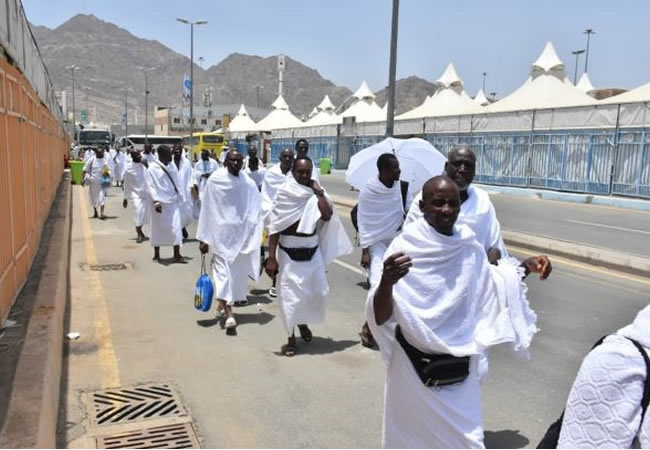
NAHCON disclosed in a statement signed by its Assistant Director, Public Affairs, Fatima Usara, on Saturday.
The commission had earlier stated that only 48,414 intending pilgrims had paid the earlier announced fare of N4.9m, out of the 90,000 quota allocated to Nigeria, following which the prospective pilgrims were required to pay an additional N1.9m “by the current foreign exchange rate.”
According to the statement, the official number of pilgrims now stood at 51,477 after the close of registration for the exercise.
A breakdown of the numbers revealed the sub-total from Borno, Adamawa, Yola, Taraba and Yobe states as 5,492 pilgrims, Northern sub-total, 36,261 pilgrims, Southern sub-total, 6,310 pilgrims, while the remaining 3,384 pilgrims were from the Hajj Savings Scheme and others, making 51,447.
Usara thanked the Federal Government for its “leading role” and “numerous sacrifices”, towards easing the burdens of the intending pilgrims, while also appreciating state governors and other stakeholders for providing support.
“After the close of registration, the official number of intending pilgrims that registered for the 2024 Hajj from Nigeria stands at 51,447 under the government quota.
“Commendably, the Bola Ahmed Tinubu-led government played a leading role in the realisation of this noble objective. The National Hajj Commission of Nigeria recognises the numerous sacrifices that the Federal Government made against all odds towards easing the constraints of its intending pilgrims.
“The commission also commends the patience exhibited by the pilgrims who were caught up in the uncertainties. The concern demonstrated by the Ulamas over the pilgrims’ predicament did not go unnoticed by the commission. Several stakeholders, including state hovernors, rendered solutions out of the gridlock. Some media houses showed tremendous understanding of the constraints which literarily exposed the reality of the quagmire the 2024 Hajj was confronting, “the statement read.
The commission noted that the 2024 Hajj exercise came with unexpected challenges, adding that going forward, it would adopt long-term planning in its pre-Hajj operations.
“Indeed, 2024 Hajj preparations came with unexpected challenges from which lessons have been learnt. NAHCON has always known that long-term planning has been the workable strategy that would have subdued the challenges that slowed down the year’s Hajj preparations.
“Going forward, long-term planning will be the commission’s paradigm shift in its pre-Hajj operations. It is a reality that all Hajj stakeholders must key into to avert unforeseen challenges,” it added.





